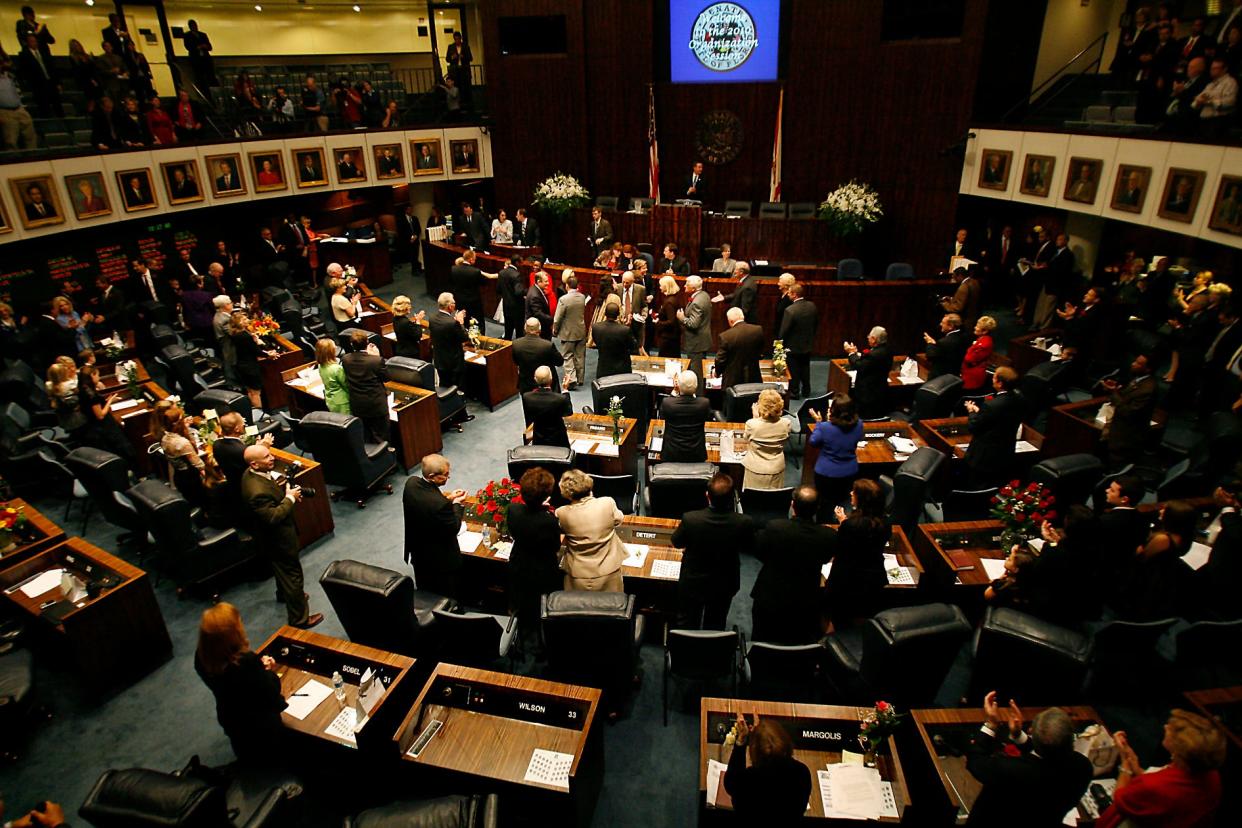State shouldn't push teachers to new professions

Florida still has a teacher shortage but you'd never know it from our state lawmakers. At a time when more should be done to hire and keep good schoolteachers, the Legislature seems fixated on making the work of educating the state's 2.7 million public school students ever more onerous and pushing teachers into another line of work.
Teachers in Florida faced challenges long before the coronavirus virus shuttered schools or the Republican Party's discovery that "parental rights" could be a potent campaign dog whistle to rile up the political base. You'd think when resignations across many occupations have become routine, that the Legislature would seek better ways to retain quality teachers. Fat chance.
There were 4,359 teaching vacancies in Florida on Jan.10, compared to 2,368 from the year before, according to the Florida Education Association data. In Palm Beach County, district figures show that 1,121 teachers were absent due to either COVID or personal leave. The situation has left the school district scrambling to combine classes, ask teachers to teach during planning periods and use administrators as substitutes.
Recognizing educators: School district names Palm Beach County's principal and teacher of the year
Recent school news: Boca school boundary proposal falters under parent assault; 2 more options to be added to mix
Clearly government has a role to play in providing good schools and competent educators. It's why the Florida Constitution considers education "...a fundamental value of the people of the State of Florida." While periodic boosts to starting teacher salaries and the occasional bonus are appreciated, they pale in comparison to the new impediments state leaders are pushing in the name of individual liberty.
Florida is just one of several Republican-led states that have targeted gender and racial studies, and the corrosive politics is having an impact on schoolteachers. A poll released last month by the nonprofit Stand for Children found that a third of the 2,000 K-12 educators surveyed cited new state laws restricting classroom discussions on race, gender and sexuality as a reason for leaving the profession.
Unfortunately, that hasn't slowed the momentum of HB 7 and HB 57 in the Florida House, and SB 148 and SB 242 in the Senate — legislative priorities of Gov. Ron DeSantis that would prohibit public schools and private businesses from offending white people when they are taught or trained about discrimination and the need for greater gender and racial equity.
Proponents of the bill insist that the legislation isn't designed to whitewash history or stop conversations about historical wrongs. The bills' purpose is to stop instruction that comes from a particular perspective. "Having a discussion of the fact that we have had that occur in our country is valid. Having it imposed on an individual just because of their background is not OK," state Sen. Manny Diaz, a sponsor, told Florida Politics. What does that even mean, and more importantly, who gets to determine the imposition? As state Sen. Lori Berman, D-Delray Beach and a critic of the bill put it: "If a student feels they've been indoctrinated and a teacher disagrees, who decides who's correct?" The problem is, many teachers may not wait around to find out.
There are other bills that may not have the priority of the governor's initiatives, but nevertheless send a troubling signal to Florida educators. HB 1055, for example, would have school districts place video cameras in classrooms and require certain teachers to wear microphones. While the bill might have good intentions of curbing abuse and crime in the classroom, it would only add hardship to an already difficult job.
The Republican push to gain greater influence on local school boards includes HJR 35 and SJR 244, which would change the Florida Constitution to make nonpartisan school board races partisan. HB 1467 would make school board membership an unpaid position. Both bills would weaken the one part of school district operations that is directly accountable to the public, by either tethering local school boards to hardline partisan political agendas or by turning over the oversight of a complex, multi-faceted government operations like school districts to unpaid volunteers.
With low wages, high-stakes testing, pandemic burnout, remote and hybrid learning, inconsistent parental support, teaching remains a challenging job at a time when employees have options. State lawmakers should remember Florida teachers aren't afraid to exercise those options to find jobs elsewhere.
This article originally appeared on Palm Beach Post: Florida Legislature shouldn't prompt teachers to quit over new bills

